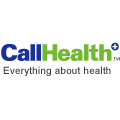Heart Failure: 7 things you should absolutely know right now!
December 06, 2018Heart failure basically means that the heart is not pumping blood the way it should be. Read more to find out the symptoms, risk factors, diagnosis tests and treatment options for heart failure.
Congestive heart failure is a condition in which the heart is not able to pump blood and acts as a collection of symptoms that weaken your heart.
Here are 7 things you should know, to help prevent and fight it.
1. Heart failure is unpredictable and can be of different types.
It can be sudden (acute) or even long-standing (chronic).
It can be caused by the heart muscles weakened or by the stiffening up(hypertrophied) of heart muscles, thereby losing the ability to relax.
It can affect any one side of the heart or both sides
2. Risk factors that cause Heart Failure
Heart diseases: Coronary artery disease, Valvular Heart Disease and others like Cardiomyopathies
Age (Higher chance with higher age) and lifestyle choices like Smoking, excessive alcohol consumption
Also read about -Nutrition going up in smoke? Here's how cigarettes destroy your vitamins.
Other diseases like Diabetes and Hypertension
Also read about -All you need to know about Diabetes: Types, Symptoms & Tests
Anti-Arrhythmic medications, diabetic medications like Pioglitazone and certain blood pressure medications
Click here to book your medications Online
3. Symptoms that are characteristic of Heart Failure
Shortness of breath: On exertion or while lying down (orthopnea)
Irregular heartbeat, chest pain, excessive fatigue
A persistent cough with pink, frothy sputum
Swelling of the lower extremities (pedal edema) or of the abdomen (Ascites). And in some severe cases, there is generalized swelling of the whole body
Increased need to urinate at night
Nausea, lack of appetite
Rapid weight gain due to excessive fluid accumulation
4. The diagnosis of Heart failure should not be delayed.
Rush to a doctor if you notice any of the symptoms. He will do an entire physical examination, auscultate your heart and lungs for abnormal sounds and check for other risk factors like blood pressure, coronary artery disease or diabetes.
Some of the most prevalent ways of diagnosis are:
B Type Natriuretic Peptide (BNP)
Chest X-Ray
2D Echocardiography
Electrocardiogram
Treadmill Test
Coronary angiogram in some cases
5. The treatment of Heart Failure is dependent on its intensity and the other conditions that have caused it.
The most common treatments are:
Beta blockers such asMetoprolol, Atenolol
Diuretics
Digoxin
Aldosterone antagonists like spironolactone
Angiotensin-converting enzyme (ACE) inhibitors such asEnalapril, Ramipril, Lisinopril
ACE inhibitors are a type of vasodilators (the drug that widens blood vessels to lower blood pressure, improves blood flow and decreases the workload on the heart
An alternative to ACE inhibitors, Angiotensin II receptor blockers is also prescribed.
Click here to book your medications online
6. Heart failure can also lead to many other complications
Renal failure
Liver congestion and failure
Arrhythmias
Even death in severe cases
7. Lifestyle modifications and prevention is key
Stay active and exercise. Ensure at least 150 minutes (per week) of moderate-intensity aerobic exercises like jogging, brisk walk, cycling, swimming etc.
Also read about -The Runner's Guide: 5 Ways to Do it Right!
Reduce and manage stress
Stop smoking and reduce intake of alcohol
Also read about -Are you a heavy drinker? Here's how alcohol is killing your essential nutrients.
Maintain a healthy weight
Keep your blood pressure under control.
One vital way of maintaining a normal blood pressure range is by restricting salt intake to less than 4gms in a day
Must read about -Are You Having the Right Amount of Salt? 10 Things You Need to Know About Salt Intake
If you are hypertensive, adopt DASH (Dietary Approaches to Stop Hypertension). This includes a diet rich in fruits, vegetables, and low-fat dairy products with reduced intake of saturated and total fat.
Article by Dr.Vighnesh Y, M.D (Internal Medicine, Dip. Rheumatology)
Consultant Physician, CallHealth

